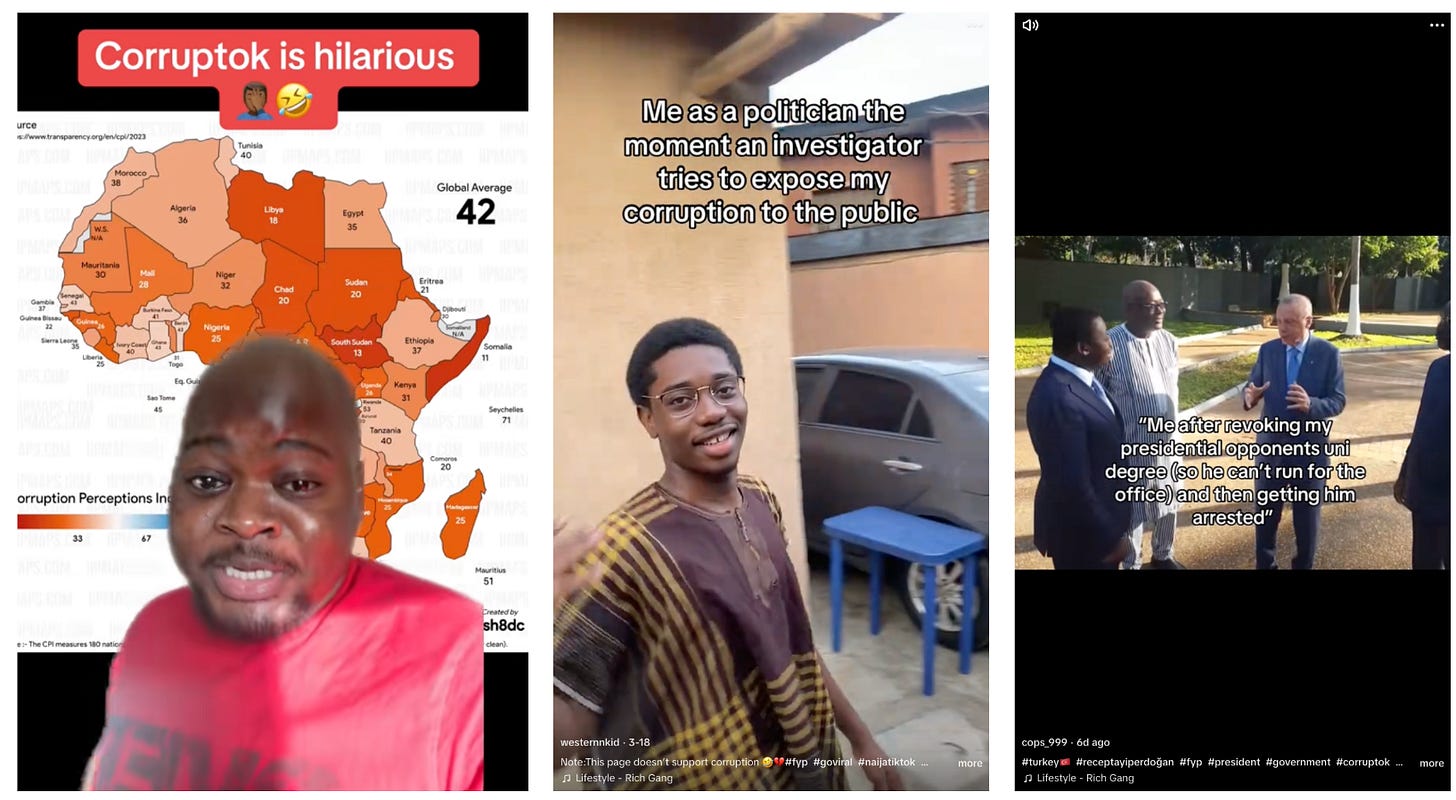Catching up on Corruptok
Genuine outrage or just another joke?
What’s Going On?
“Me as a politician the moment an investigator tries to expose my corruption to the public.”
“Me after creating generational debt for my country but securing generational wealth for myself.”
CorrupTok (aka CorruptCore) gained traction in mid-March 2025 with Nigerians calling out President Bola Tinubu, and has since spread to critique (alleged, of course) corruption in Turkey, Hungary, the US, and even Thatcherite Britain.
What’s Driving It?
Social media quickly evolved into a tool for political organizing – Arab Spring thrived because people used the platforms as engines of protest and revolution. But if that was about driving actual change change, CorrupTok seems to be more about catharsis. Satire has always been a part of political discourse, but CorrupTok feels different – more chaotic, more cynical, and far less sincere. It’s the internet’s favorite coping mechanism: turning everything into content.
What Does It Mean?
By turning corrupt politicians into punchlines, creators are reclaiming power through ridicule – raising awareness at scale and getting new audiences invested in other countries’ politics.
But when political critique gets reduced to snarky TikTok punchlines (especially about countries most outsiders know little about), it's easy for misinformation to enter the mix. Corruptok might be making corruption more visible, but it’s also blurring the line between what’s real and what’s just content. If everything’s a joke, how do we figure out what actually needs fixing? And more importantly, how do we fix it beyond just saying, “lol, look at these corrupt politicians?”
Final Takeaway
Memes have the power to create a shared language of satire, raising awareness of key issues through entertainment. But when it comes to political commentary, we need to consider who’s creating this type of content and why – and without (considered) action, Corruptok risks turning genuine outrage into nothing more than fleeting entertainment.


